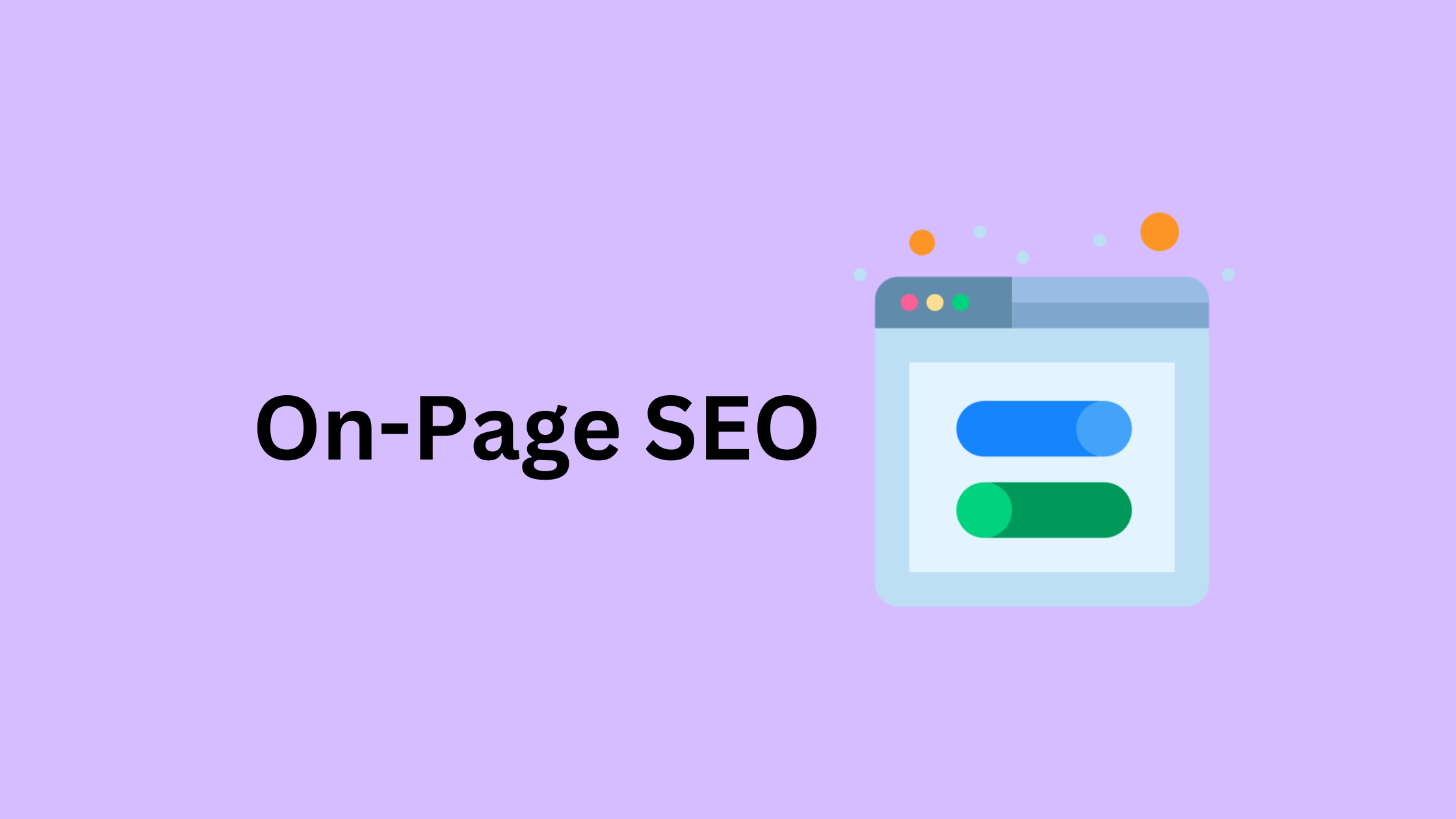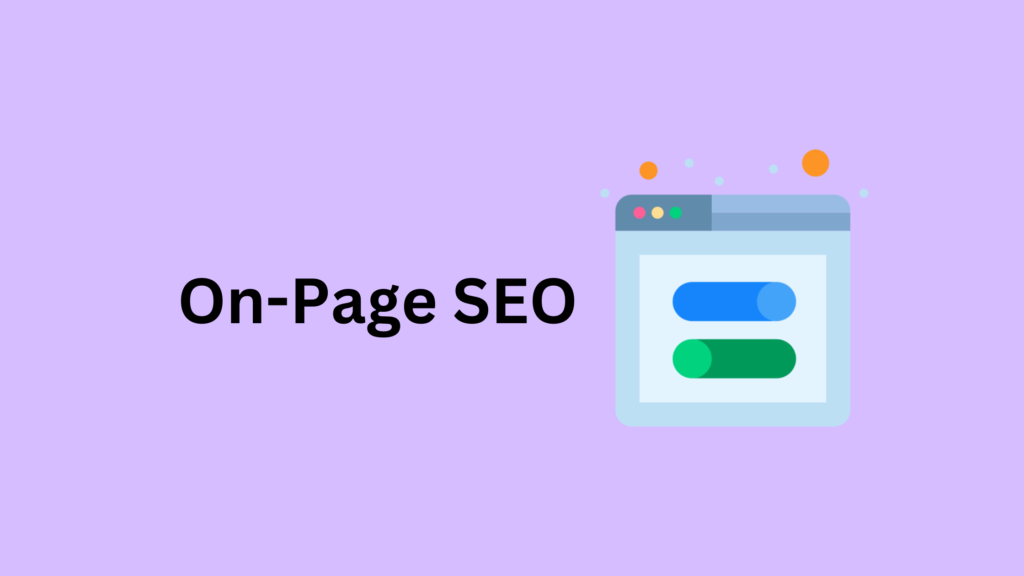Address
304 North Cardinal St.
Dorchester Center, MA 02124
Work Hours
Monday to Friday: 7AM - 7PM
Weekend: 10AM - 5PM
Address
304 North Cardinal St.
Dorchester Center, MA 02124
Work Hours
Monday to Friday: 7AM - 7PM
Weekend: 10AM - 5PM


On-Page SEO refers to the practice of optimizing individual web pages to rank higher in search engine results and attract more organic traffic. It involves optimizing various elements on your website, such as content, meta tags, URL structure, and internal linking.
Effective On-Page SEO is crucial for improving your website’s visibility and attracting targeted visitors. It helps search engines understand your content better and rank it accordingly, leading to increased organic traffic and potential conversions.
Content optimization refers to the process of improving the quality, relevance, and structure of content to enhance its visibility and performance in search engine rankings. It involves various strategies and techniques aimed at making your content more appealing to both search engines and users.
Creating high-quality, relevant, and engaging content is essential for On-Page SEO. Your content should be well-written, informative, and provide value to your target audience.
Keyword optimization involves researching and incorporating relevant keywords into your content, meta tags, and URL structure. It helps search engines identify the relevance of your content to specific search queries.
Meta tags, including title tags and meta descriptions, provide information about your web page’s content to search engines and users. Optimizing these tags with relevant keywords can improve your click-through rates and search engine rankings.
A clean and descriptive URL structure can make it easier for search engines and users to understand your website’s hierarchy and navigate your content. Avoid using long, complex URLs with unnecessary parameters.
Internal linking helps distribute page authority and guide users to relevant content within your website. It also helps search engines crawl and index your pages more efficiently.
With an increasing number of users accessing websites on mobile devices, optimizing your website for mobile is crucial. Ensure your site is responsive, loads quickly, and provides a seamless user experience across all devices.
Focus on creating original, valuable, and engaging content that resonates with your target audience. Use relevant keywords naturally throughout your content and avoid keyword stuffing.
Optimize your website’s loading speed by compressing images, leveraging browser caching, and minimizing code. A faster website not only improves user experience but also positively impacts your search engine rankings.
Optimize images by reducing their size without compromising quality, using descriptive file names, and adding alt text. This can improve your website’s load time and enhance accessibility.
Prioritize user experience by ensuring easy navigation, clear call-to-action buttons, and a visually appealing design. A positive user experience can encourage longer site visits and reduce bounce rates.
Overloading your content with keywords can make it unreadable and harm your search engine rankings. Focus on creating natural and informative content that provides value to your readers.
Neglecting mobile optimization can result in a poor user experience for mobile users and negatively impact your search engine rankings. Ensure your website is mobile-friendly and provides a seamless experience across all devices.
Ignoring user experience can lead to high bounce rates and low conversions. Focus on creating a user-friendly website with clear navigation, fast loading times, and engaging content.
In conclusion, On-Page SEO is a fundamental aspect of digital marketing that can significantly impact your website’s visibility and performance in search engine rankings. By focusing on key elements such as content optimization, meta tags, and user experience, you can create a strong foundation for your SEO strategy and attract more organic traffic to your website.
FAQs
What is On-Page SEO?
On-Page SEO refers to the practice of optimizing individual web pages to rank higher in search engine results and attract more organic traffic.
How does On-Page SEO differ from Off-Page SEO?
While On-Page SEO focuses on optimizing individual web pages, Off-Page SEO involves activities conducted outside of your website, such as link building and social media marketing.
Why is content quality important in On-Page SEO?
High-quality, relevant content is essential for attracting and engaging your target audience, improving search engine rankings, and encouraging conversions.
How often should I update my website for On-Page SEO?
Regularly updating your website with fresh, relevant content and optimizing existing content can help improve your search engine rankings and keep your audience engaged.
Can I do On-Page SEO myself, or should I hire a professional?
While you can certainly handle basic On-Page SEO tasks yourself, hiring a professional SEO expert can provide you with valuable insights, expertise, and a more comprehensive strategy to optimize your website effectively.